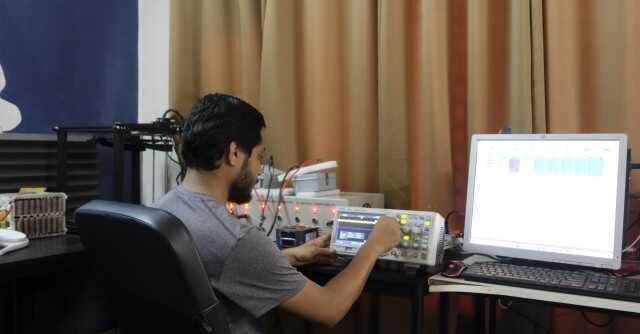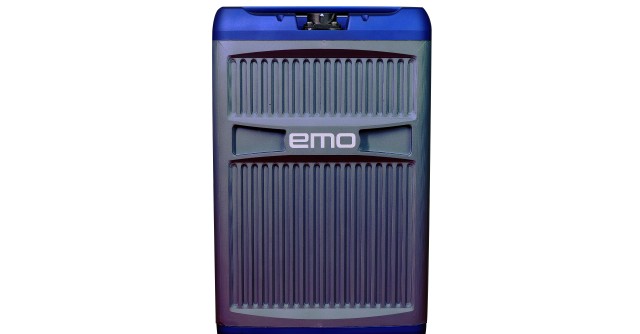
Ex-Ola Electric execs’ startup claims to mitigate India’s problem of EV fires


A startup founded by two former executives of Ola Electric is claiming to have found a solution to arrest the rising tally of electric vehicle (EV) fires across the country.
Bengaluru-based EMO said it has been testing its battery pack in adverse conditions for the last three months, and is now able to offer a full fire safety assurance to customers, while also increasing a battery’s lifecycle, which increases the overall life of an EV. The company was founded by Rahul Patel and Sheetanshu Tyagi, who earlier worked in the battery department at Ola Electric. Patel also led thermal engineering at Sun Mobility while Tyagi worked on design and manufacturing aspects at EV-startup Ather Energy.
Their solution, according to Tyagi, comprises a patent-pending special fluid that absorbs and distributes heat across the battery pack, along with a machine learning (ML)-driven battery management system (BMS), which keeps tabs on the different cells in the battery, their temperatures, status, etc.

“The whole battery is engulfed in a special non-conductive and energy absorbing semi-solid fluid. We’ve patented that and developed it with some chemical labs in India. Then we’ve developed our own electronic system within it, which circulates the heat across the pack. So, if one of the cells inside the pack starts heating up, this whole system will go into overdrive, take the heat out from there and distribute it everywhere else,” said Tyagi.
This, according to him, is one of the primary problems with affordable EVs in India. Manufacturers source cheaper cells to build their battery packs, and errors in design, lack of quality etc. leads the EVs to catch fire as soon as a single cell malfunctions. “The global situation is at a point that you wouldn’t even feel it if a cell inside the pack is catching fire. You wouldn’t even know if a Tesla cell within their pack is catching fire, they’ve designed their entire system around it,” noted Tyagi. EMO is awaiting a patent each for the fluid and pumping system, the overall battery design and the BMS.


EMO's battery pack. The company claims it can avoid EV fires.
Like all BMSs, EMO's also monitors the voltage, temperature and electricity being encountered by the cells in a battery. However, this is an internet of things (IoT) system that connects to the cloud using an e-sim for advanced analytics.
“Our BMS is able to measure temperature in advance. A ML model is studying different points in the battery pack, and predicts future conditions. So you can actually know in advance that one of the cells may fail,” Tyagi explained. The fluid mentioned above absorbs this heat and spreads it over the entire pack, thereby reducing instances of fire.

While the company is focusing on two- and three-wheelers currently, it plans to expand to four-wheelers and trucks eventually, and add fast charging to its packs. It aims to become an independent supplier for OEMs and battery swapping firms.
However, EMO’s solution is far from proven just yet. While the company has tested 30 units and says it can provide the guarantee, not everyone is convinced. According to Tyagi, 80-90% of batteries in India in the next two-three years will be made using affordable cells from China, which is why EMO’s packs are made using the same cells.
Any cell can catch fire, there’s no 100% guarantee as such. What you have to ensure is that the cell works within a threshold, which a lot of good manufacturers do. No BMS or battery design can stop fires if the threshold is crossed,” said the founder of an Indian battery swapping startup, requesting anonymity. “It’s tough to address these issues unless you’re making your own cell,” he added.

EMO also stands to face competition from other startups and tier-1 battery makers. "Battery pack is certainly a market opportunity that a lot of new startups will come in," said Kavan Mukhtyar, Partner and Leader, Automotive, PwC India. He added that a lot of established companies are also getting into the space, including tier-1 battery suppliers. "For them it's a natural extension, and they are looking at investing in startups, developing in-house technology, and a lot of those things are happening right now as we speak. This is where the value addition will happen in the industry's future value chain, so there will definitely be more companies coming in," he added.
